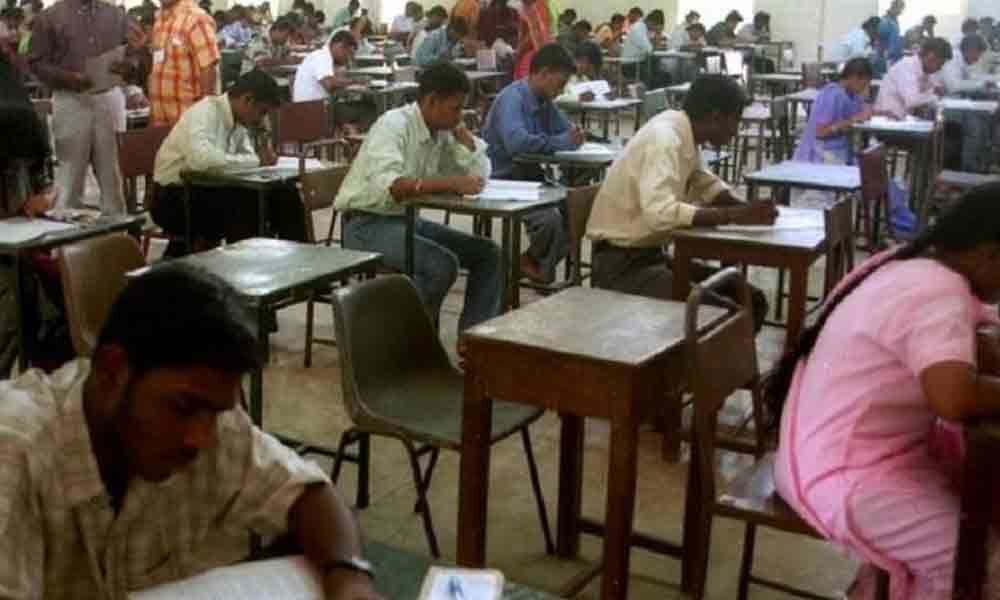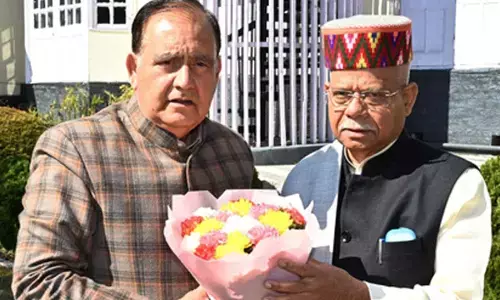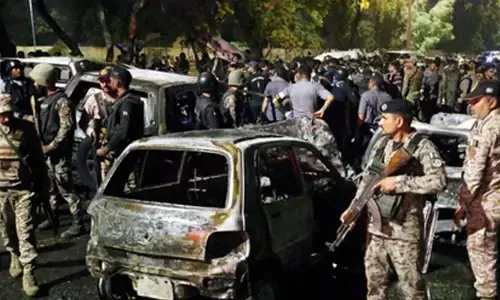The way forward for Civil Service aspirants
 The way forward for Civil Service aspirants
The way forward for Civil Service aspirantsThe Civil Service of India is one of the challenging and lucrative career options for aspirants, who will serve the nation. Preparation for the UPSC's Civil Services Examination needs diligence sheer hard work with a commitment.
The Civil Service offers attractive remuneration and prestige for many administrators who are instrumental in implementing key government policies, programmes and flagship welfare schemes. They are touted as the future of the nation.
The sine qua non of Civil Services entails a wide diverse range of responsibilities such as maintenance of law and order, measures to take in case of natural disasters, upliftment and empowerment of marginalised weaker sections of society, decisive decision making skills, ability to face challenges and sound judgment are imperative for the aspirants to join the Indian Administrative Service, the Indian Police Service or the Indian Foreign Service
The Civil Services Examination critically focused on testing the candidate's knowledge, analytical understanding of polity, economics and social sciences and ability to articulate them, and also to assess overall social trait. The selection process of civil services is rigorous for aspirants that start from preliminary examination comprising objective questions on current affairs, followed by a main examination and an interview.
The preliminary examination assesses the candidate's general aptitude and basic administrative traits. It consists of paper-I and Paper-II. Paper I has questions on current events, history of India and the Indian national movement, Indian and world geography, Indian polity, the panchayati raj system and governance, economic and social development, environmental ecology, biodiversity, climate change and general science, and art and culture.
Paper II tests the aspirants' interpersonal skills, communication, logical reasoning, analytical ability, decision-making, problem-solving, data interpretation, English language comprehension skills and mental ability. The candidate needs to obtain only a pass percentage of 33 per cent in Paper II; the qualification to the main examination round is on the basis of one's performance in Paper I.
The main examination consists of nine papers, two qualifying and seven ranking in nature. These test the candidate's in-depth knowledge in different subjects, ability to discern things in perspective, and thinking capacity, through comprehensive essays. The interview, usually conducted by a panel of five or six members headed by a chairperson, tests the overall personality of the candidate and alertness of mind and ability to work under pressure.
While preparing for the interview, a candidate should learn to demonstrate her or his individual opinion on current issues and policy matters. The idea is to test the candidate's interpretation and ability to critique rather than just display knowledge of the subject under discussion.
Following current affairs and editorial column in various newspapers is essential for cracking the Civil Services examination. The questions are based on current issues—regional, national and international and constant monitoring of the latest developments and updating oneself with the reports pertaining to that particular topic.
This again makes it mandatory for an aspirant to keep abreast of the latest news. The candidates are advised to follow the syllabus prescribed for civil services examination based on syllabus read the newspapers and underline the important topics related to syllabus and analyse with relevant current affairs in the newspapers.
The first exercise should be to mark the news relating to the topics covered under the Civils examinations. The next process should involve a detailed reading of those news items and taking notes.
This is a dynamic process to be followed religiously until the last day of the examination and the interview.
For the main examination, particularly the essays section, which is a test of the candidate's insight of social, political and economic awareness, experts suggest the reading of editorials. Referring good completion magazines and good books are essential for those who want to crack the coveted examination. This is because the syllabus of the examination is vast and there is need to have a mentor to guide one as to what is relevant.








